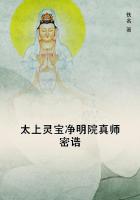The problem which was already being mooted by such scientific men as Ramsay, Rutherford, and Soddy, in the very beginning of the twentieth century, the problem of inducing radio-activity in the heavier elements and so tapping the internal energy of atoms, was solved by a wonderful combination of induction, intuition, and luck by Holsten so soon as the year 1933. From the first detection of radio-activity to its first subjugation to human purpose measured little more than a quarter of a century. For twenty years after that, indeed, minor difficulties prevented any striking practical application of his success, but the essential thing was done, this new boundary in the march of human progress was crossed, in that year. He set up atomic disintegration in a minute particle of bismuth; it exploded with great violence into a heavy gas of extreme radio-activity, which disintegrated in its turn in the course of seven days, and it was only after another year's work that he was able to show practically that the last result of this rapid release of energy was gold. But the thing was done--at the cost of a blistered chest and an injured finger, and from the moment when the invisible speck of bismuth flashed into riving and rending energy, Holsten knew that he had opened a way for mankind, however narrow and dark it might still be, to worlds of limitless power. He recorded as much in the strange diary biography he left the world, a diary that was up to that particular moment a mass of speculations and calculations, and which suddenly became for a space an amazingly minute and human record of sensations and emotions that all humanity might understand.
He gives, in broken phrases and often single words, it is true, but none the less vividly for that, a record of the twenty-four hours following the demonstration of the correctness of his intricate tracery of computations and guesses. 'I thought I should not sleep,' he writes--the words he omitted are supplied in brackets--(on account of) 'pain in (the) hand and chest and (the) wonder of what I had done.... Slept like a child.'
He felt strange and disconcerted the next morning; he had nothing to do, he was living alone in apartments in Bloomsbury, and he decided to go up to Hampstead Heath, which he had known when he was a little boy as a breezy playground. He went up by the underground tube that was then the recognised means of travel from one part of London to another, and walked up Heath Street from the tube station to the open heath. He found it a gully of planks and scaffoldings between the hoardings of house-wreckers.
The spirit of the times had seized upon that narrow, steep, and winding thoroughfare, and was in the act of ****** it commodious and interesting, according to the remarkable ideals of Neo-Georgian aestheticism. Such is the illogical quality of humanity that Holsten, fresh from work that was like a petard under the seat of current civilisation, saw these changes with regret. He had come up Heath Street perhaps a thousand times, had known the windows of all the little shops, spent hours in the vanished cinematograph theatre, and marvelled at the high-flung early Georgian houses upon the westward bank of that old gully of a thoroughfare; he felt strange with all these familiar things gone. He escaped at last with a feeling of relief from this choked alley of trenches and holes and cranes, and emerged upon the old familiar scene about the White Stone Pond. That, at least, was very much as it used to be.















